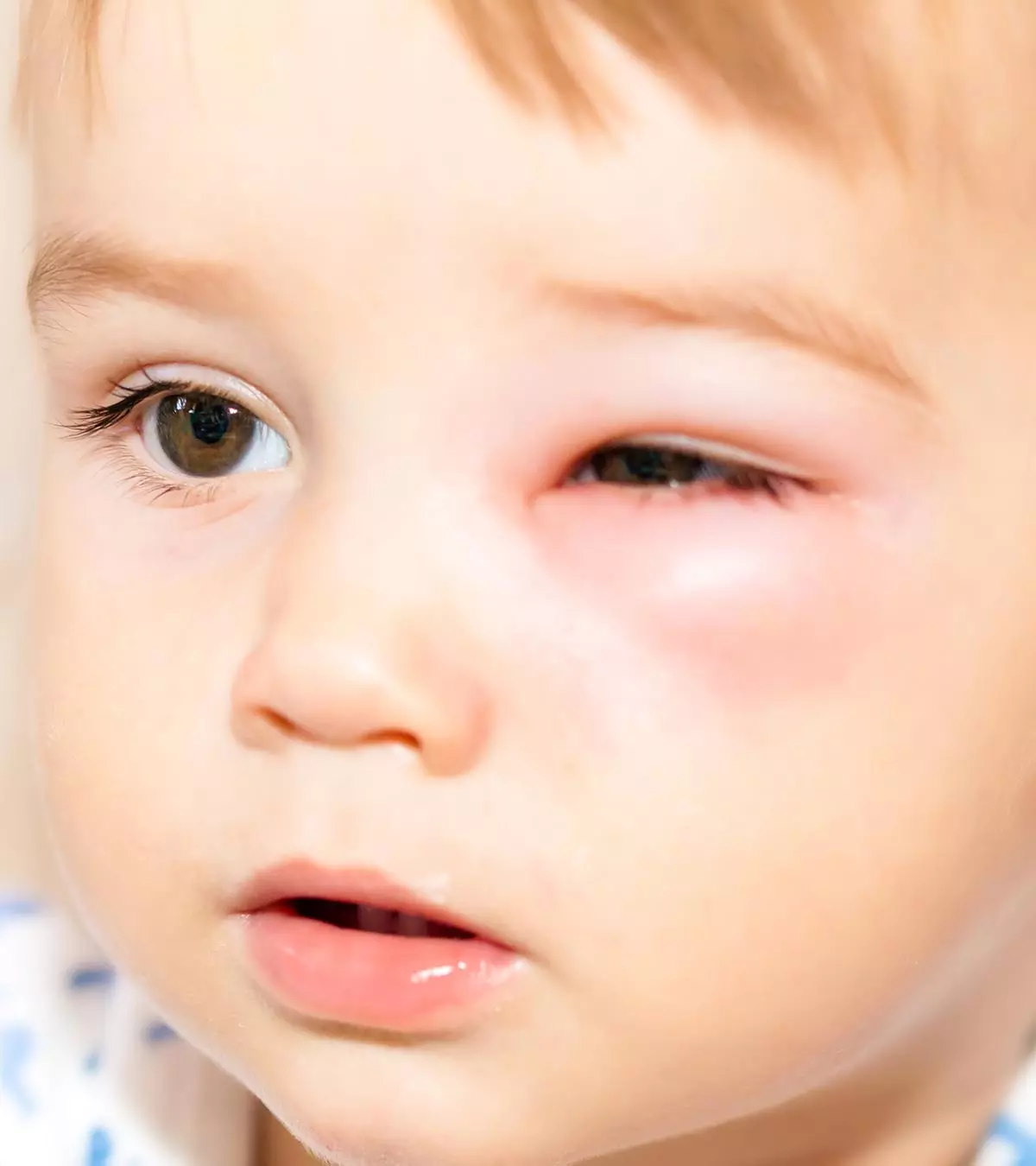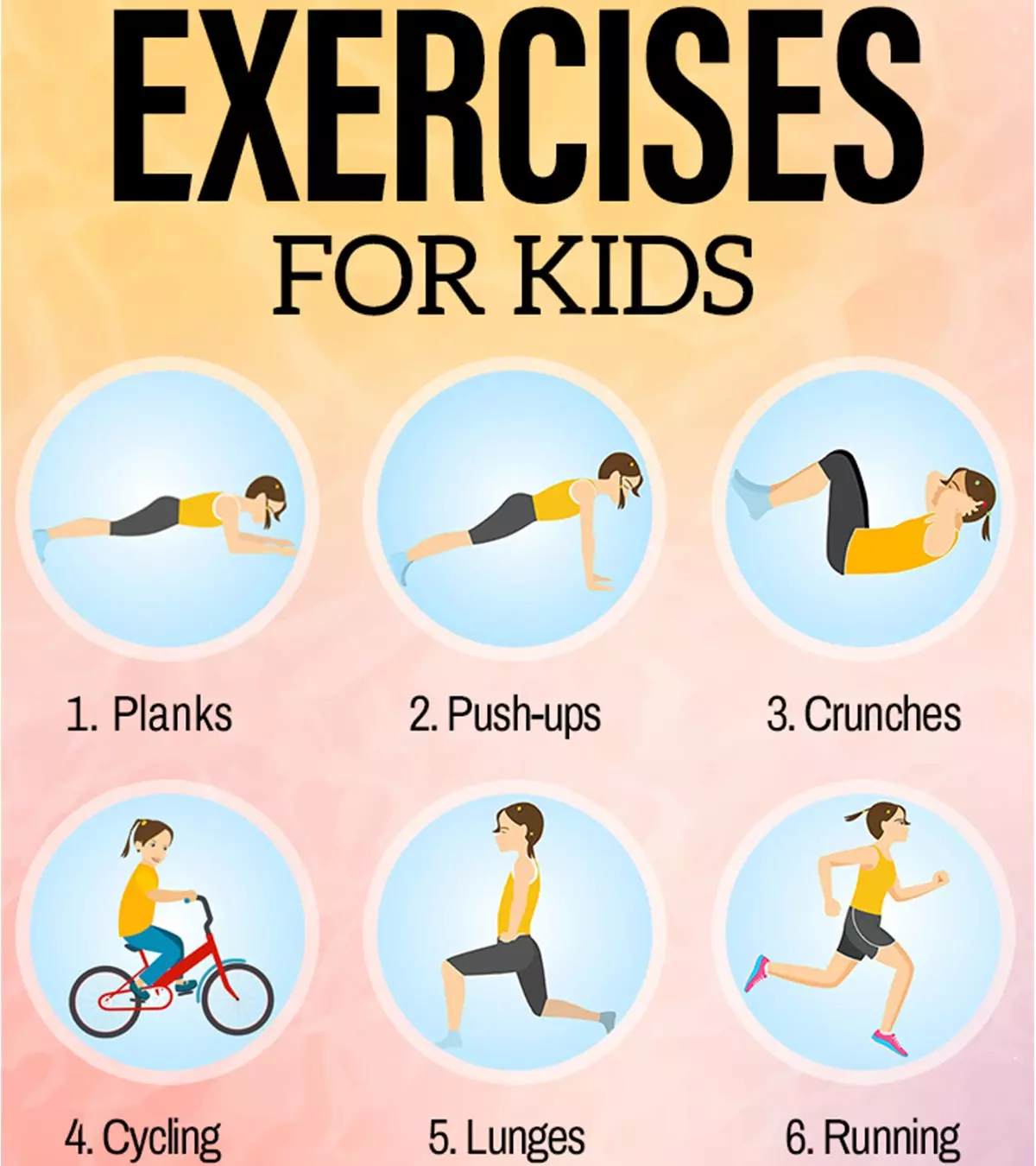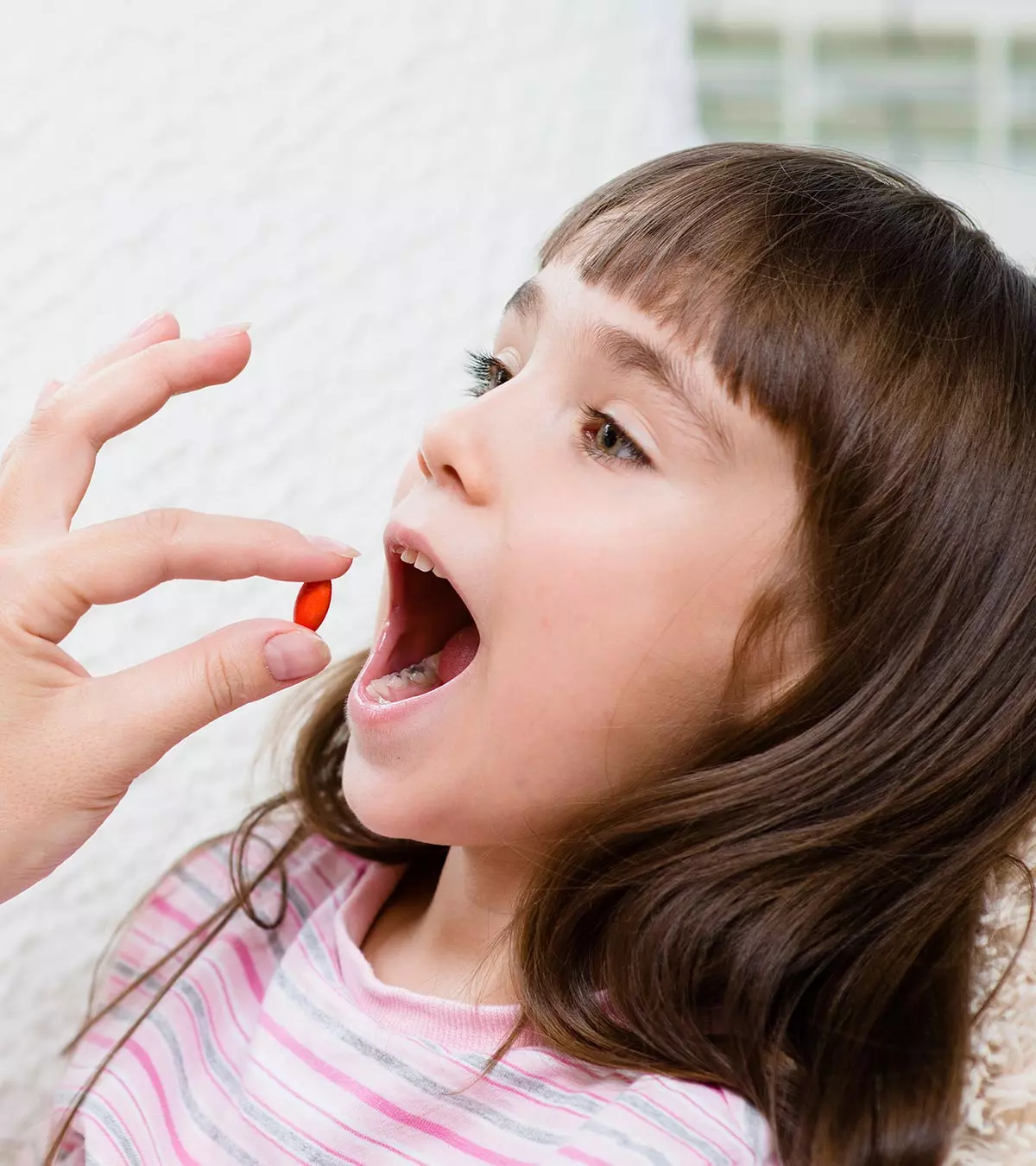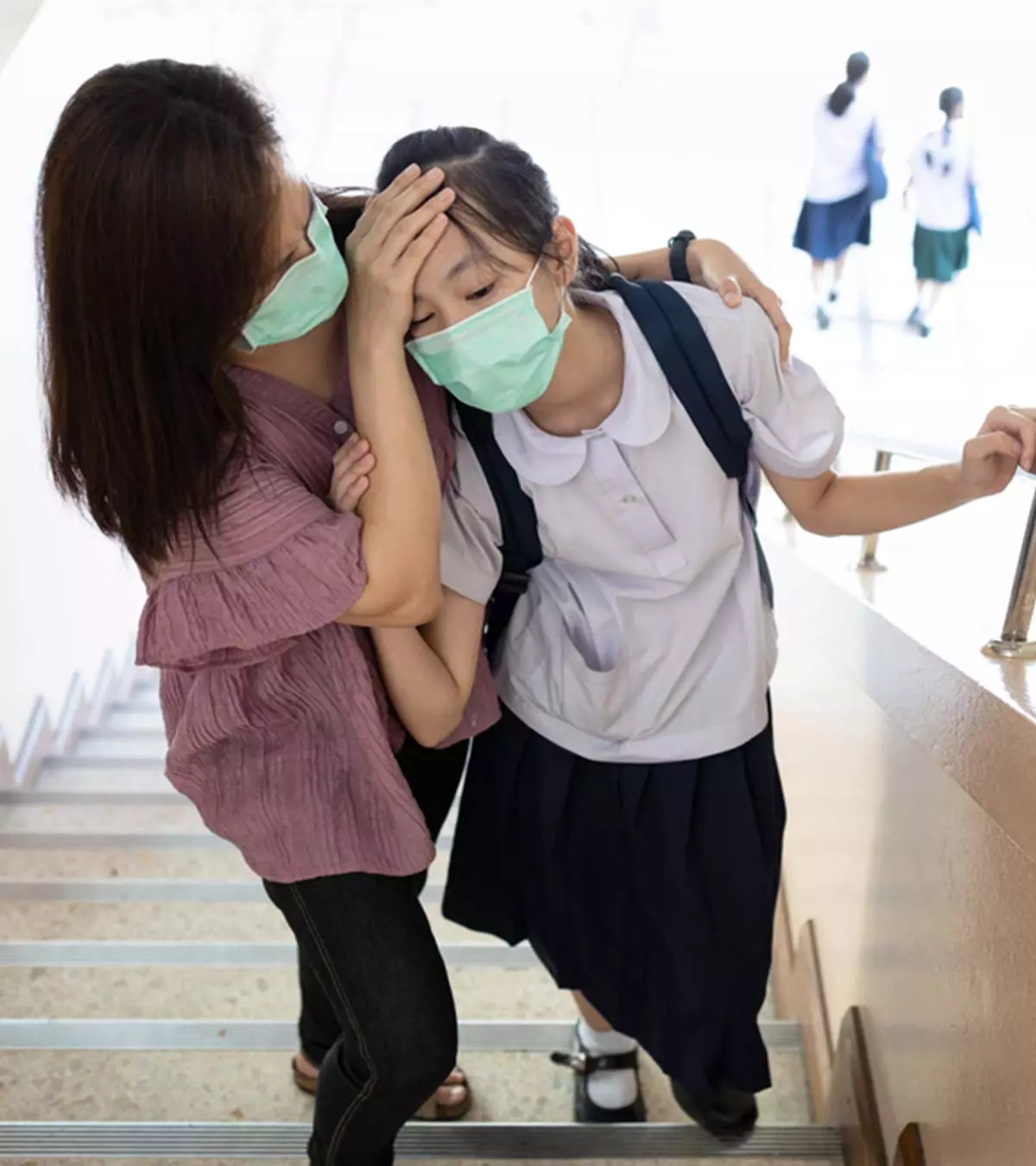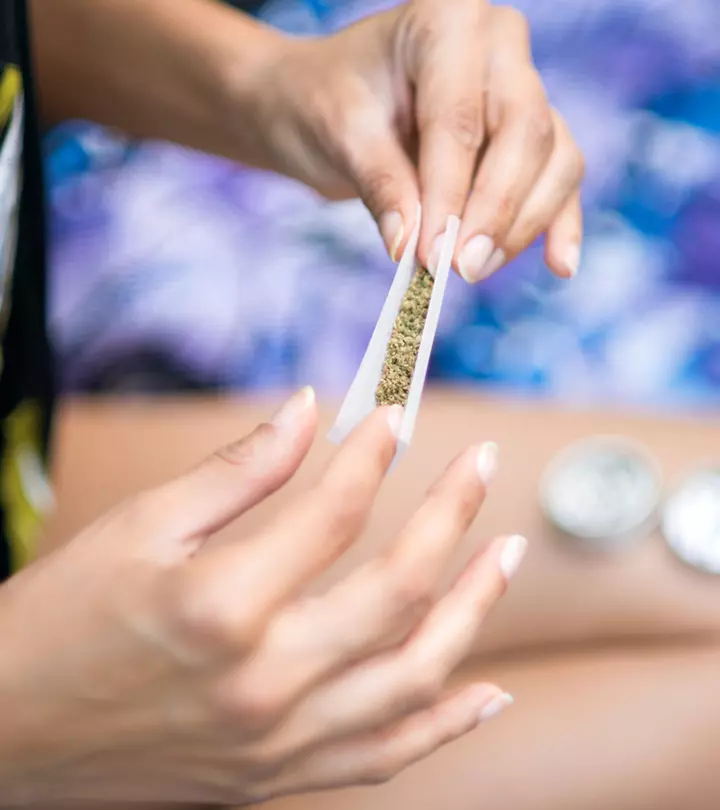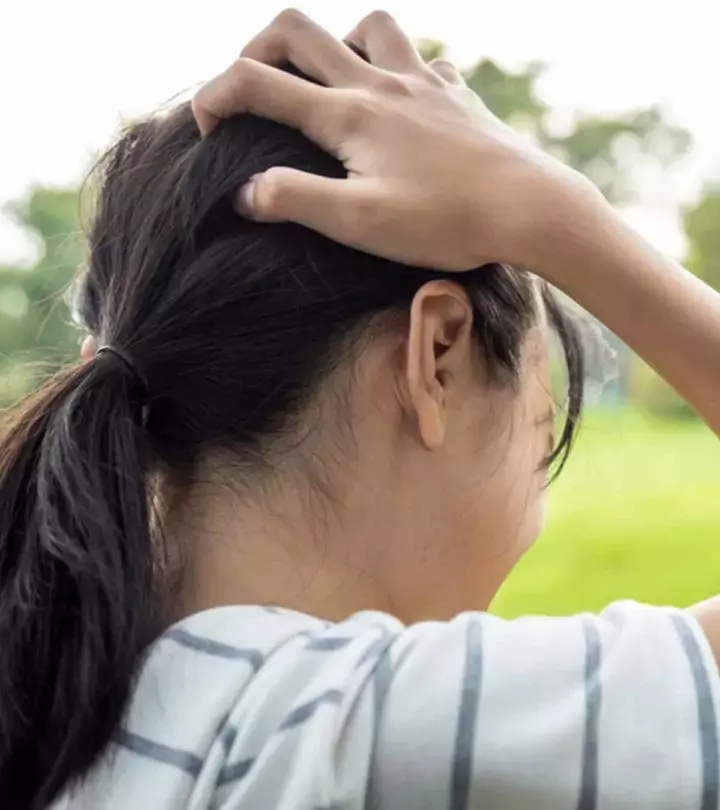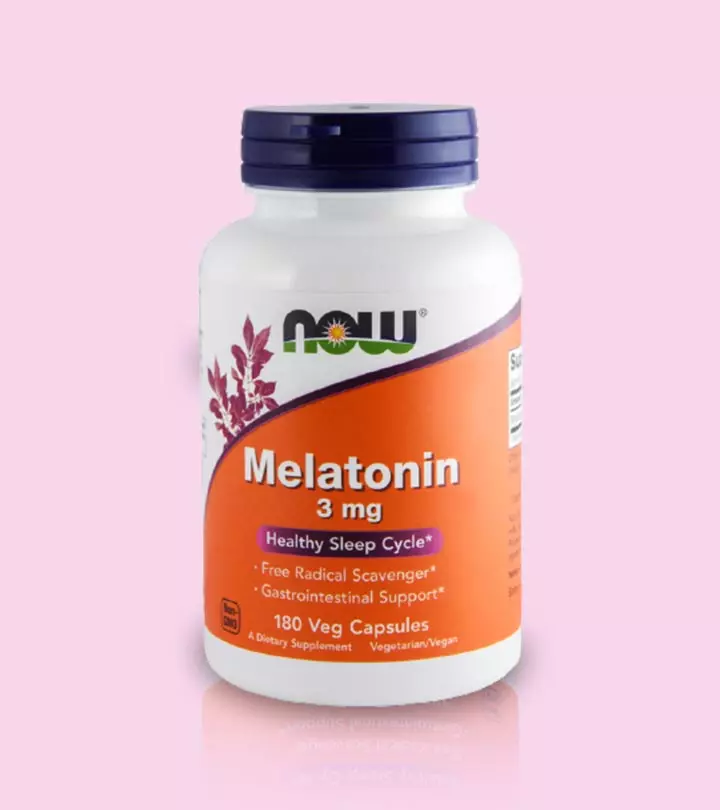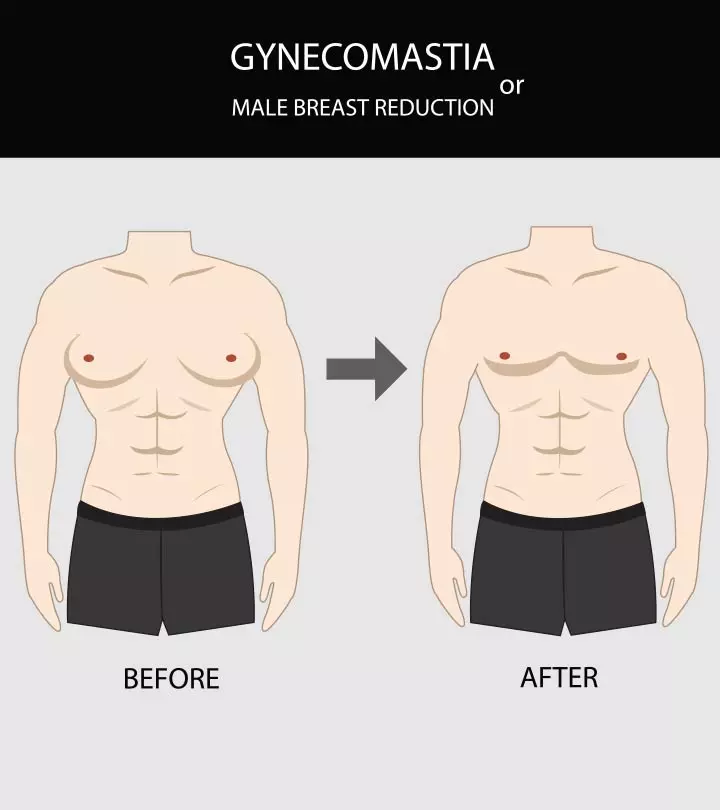
Image: Shutterstock
Gynecomastia in teens is common and happens mostly due to hormonal changes and is characterized by excess breast tissue growth
. All men have some glandular breast tissue physiologically. However, for some men, it grows more than in others, resulting in breast development that makes the breasts appear more prominent (1).As the condition happens due to hormonal changes, in most cases, it resolves on its own. However, in some cases, certain underlying medical conditions may lead to gynecomastia or breast swelling in men. To know the exact cause of gynecomastia, consult a professional healthcare provider. Read on as we discuss the causes, diagnosis, and treatment of gynecomastia in teens.
Key Pointers
- Gynecomastia in teens is a common condition that begins around ten years of age and usually subsides on its own within a few months or years.
- Fluctuations in estrogen and progesterone are its main cause.
- However, in rare cases, it could also occur due to certain medications, thyroid disease, and Klinefelter’s syndrome (congenital disorder).
- The treatment depends on the cause and may include modalities, such as hormone therapy, weight loss, and breast reduction surgery.
How Common Is Gynecomastia In Teens?
Adolescent gynecomastia is a common condition and starts around the age of ten. Nearly half of all adolescent boys between the ages of 12 and 16 develop gynecomastia in either one or both breasts. Gynecomastia recedes on its own within a few years. By the age of 17 years, only 10% of teenage boys may have persistent gynecomastia (2) (3).
How Long Does Gynecomastia In Teens Last?

Image: IStock
Gynecomastia may last for a few months or a few years during puberty. It begins during early puberty and may fade away during middle adolescence. Usually, the breasts reduce within six months to two years (4).
What Causes Gynecomastia In Teens?

Image: Shutterstock
Fluctuating hormone levels (estrogen and testosterone) during adolescence is the main cause of gynecomastia in teens. During these fluctuations, elevated estrogen levels could cause enlarged breasts (2). Pubertal gynecomastia is mainly a physiological phenomenon. Pathological gynecomastia is rare and occurs due to an absolute or relative estrogen excess.
In rare cases, gynecomastia could occur due to the following reasons (1) (5).
- Klinefelter’s syndrome (congenital disorder)
- Over-the-counter medications
- Side effects of certain drugs (antidepressants, antibiotics, or cancer medications)
- Intake of illegal drugs (heroin, marijuana, or steroids)
- Adrenal gland or pituitary gland tumors
- Cancers of lung or testicles
- Diseases of the kidney or liver
 Things to know
Things to knowObesity in teens can also cause gynecomastia due to the accumulation of fat tissue instead of glandular tissue in the breasts. This is called pseudogynecomastia (false gynecomastia), which is independent of puberty and related hormonal changes.
What Are The Symptoms Of Gynecomastia In Teens?
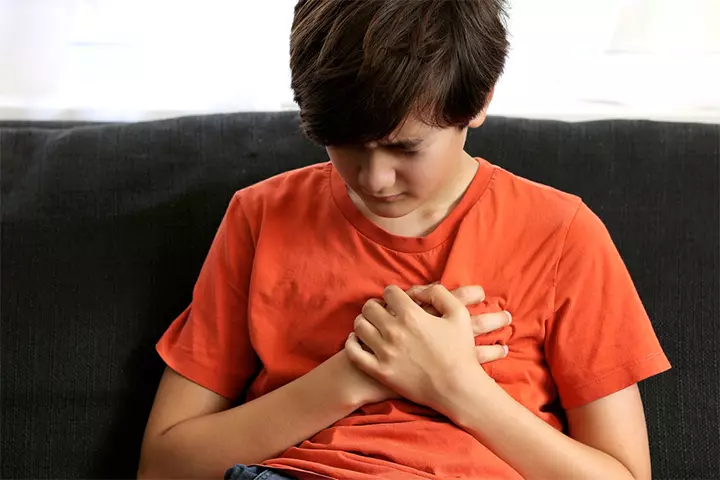
Image: Shutterstock
Gynecomastia in teens can be identified due to the enlargement of either one or both breasts. It may begin as a slight lump beneath the nipple. Breast tenderness may also be present (5).
The following symptoms may be present if the breast enlargement is due to non-hormonal reasons (3).
- Nipple discharge
- Bleeding
- Mastalgia (breast pain)
 Quick tip
Quick tipHow Is Gynecomastia In Teens Diagnosed?
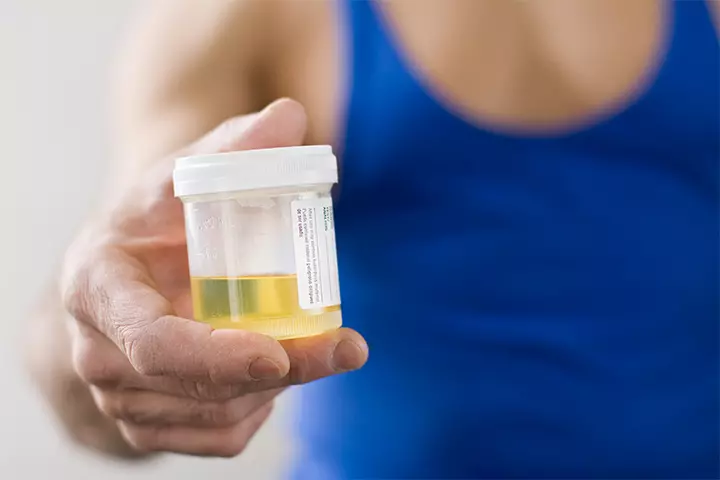
Image: IStock
A physical examination is a primary method of diagnosis. The pediatrician may check the teen’s medical history and suggest any of the following tests to confirm gynecomastia (5) (6).
- Breast ultrasonography
- Urine tests
- Biopsy of the breast tissue
- Mammogram of the breast
- Blood tests to check for any hormone imbalance and liver profile
What Is The Treatment For Gynecomastia In Teens?
Gynecomastia in teens usually goes away in a few months to a couple of years. If the enlargement is due to puberty, no treatment may be recommended. However, if extreme hormonal imbalance is identified, an endocrinologist may suggest hormonal therapy (5).
If gynecomastia is due to other reasons, the treatment could depend on the cause and may include (7):
- Weight loss
- New medications (based on the illness)
- Discontinuing or changing previous medical treatment
- Breast reduction surgery
 Quick tip
Quick tipWhat Are The Complications Of Gynecomastia In Teens?

Image: IStock
Benign gynecomastia due to hormonal changes doesn’t cause any complications. However, teens with gynecomastia may face emotional challenges. Increased self-consciousness regarding their appearance might make a teenager skip school and social events. It may even affect their mental health. In addition, adolescents with gynecomastia may frequently opt for loose clothing to hide their physique. These constant thoughts on embarrassment may lead to anxiety and depression (2).
Dr. NRB Shuvo discusses his teenage years, recounting the challenges he faced with bullying due to gynecomastia. He says, “I used to avoid confrontations by laughing and somehow changing the topic. But inside I was deeply scarred by this constant bullying.
Whenever I went to take a bath in the bathroom, I always looked at the mirror and asked the Creator to heal me, many a time with wet eyes. There wasn’t a day when I hadn’t thought about it. Every day in the past 13 years, a total of 4845 days, I’ve wanted to get rid of it.” He eventually went on to have breast reduction surgery (i).
Complications may arise after undergoing surgical treatment for gynecomastia. These risks may include (8):
- Anesthesia-related risks
- Bleeding
- Scarring
- Irregular breast shape
- Internal damage to the structure beneath the breast
- Death of fat tissue around the breasts (fat necrosis)
- Heart and lung complications
- Compromised wound healing
- Infection and pain
Frequently Asked Questions
1. Is gynecomastia genetic?
The chances of gynecomastia being genetic are low but not zero (9).
2. Is it possible to live with gynecomastia?
Most cases of gynecomastia resolve on their own after a certain period. In cases where it does not, deciding to live with it can be a difficult lifestyle choice (10).
3. Can I get rid of gyno naturally?
Yes, gynecomastia usually resolves on its own before boys turn 21 (11).
4. How can parents support their teens during gynecomastia?
Educate yourself about the condition and help them understand it is relatively common and temporary. Create a safe, nonjudgmental space for open conversations, reassuring them they are not alone. Emphasize body positivity and encourage healthy habits like a balanced diet and regular exercise. Be patient, as gynecomastia often resolves on its own. Seek professional medical or behavioral health assistance if the condition persists or causes significant distress.
Gynecomastia in teens may not be a permanent condition and may last for a few months or years after the teen has reached puberty. It is pathological only in rare cases. However, it is safe to identify whether the cause is benign. If you notice the symptoms of gynecomastia, consult your doctor for a diagnosis. As the condition may cause stress, help your teen overcome the situation. You may also seek the help of a therapist if the condition is taking a toll on your teen’s mental health.
Infographic: Psychosocial Effects Of Gynecomastia In Teenage Boys
Gynecomastia can negatively affect teenage boys if it is not managed on time. Even teens with mild or moderate gynecomastia tend to have similar psychosocial issues as in severe cases. Timely management may help prevent these mental health issues. Go through the infographic to know the psychosocial impact of gynecomastia in adolescent boys to identify and manage them on time. Illustration: Momjunction Design Team
Personal Experience: Source
MomJunction articles include first-hand experiences to provide you with better insights through real-life narratives. Here are the sources of personal accounts referenced in this article.
i. I had gynaecomastia (enlarged male breast) which got me bullied my whole teen life.https://medium.com/illumination/i-had-gynaecomastia-enlarged-male-breast-which-got-me-bullied-my-whole-teen-life-d0992c9f7f0f
References
- Gynecomastia.
https://my.clevelandclinic.org/health/symptoms/16227-enlarged-male-breast-tissue-gynecomastia - Gynecomastia Symptoms and Causes.
https://www.childrenshospital.org/conditions-and-treatments/conditions/g/gynecomastia/symptoms-and-causes - Gynecomastia in Adolescent Males.
https://www.ncbi.nlm.nih.gov/pmc/articles/PMC3706045/ - Gynecomastia.
https://www.uofmhealth.org/health-library/hw51306spec - Gynecomastia.
https://www.hopkinsmedicine.org/health/conditions-and-diseases/gynecomastia - Gynecomastia.
https://www.aafp.org/pubs/afp/issues/2012/0401/p716.html - Treatments for Gynecomastia in Children.
https://www.childrenshospital.org/conditions/gynecomastia - Gynecomastia Surgery.
https://www.plasticsurgery.org/cosmetic-procedures/gynecomastia-surgery/safety - Gynecomastia (man boobs).
https://www.healthymale.org.au/mens-health/gynaecomastia - Living with Gynecomastia.
https://www.gynecomastia.org/gynecomastia-101/living-with-gynecomastia - Does Gynecomastia Go Away?
https://lagynecomastia.org/gynecomastia-2/gynecomastia-go-away/ - Breast enlargement in males.
https://medlineplus.gov/ency/article/003165.htm
Community Experiences
Join the conversation and become a part of our nurturing community! Share your stories, experiences, and insights to connect with fellow parents.
Read full bio of Dr. Arva M Bhavnagarwala
Read full bio of Sindusha MS
Read full bio of Dr. Ritika Shah
Read full bio of Dr. Joyani Das







